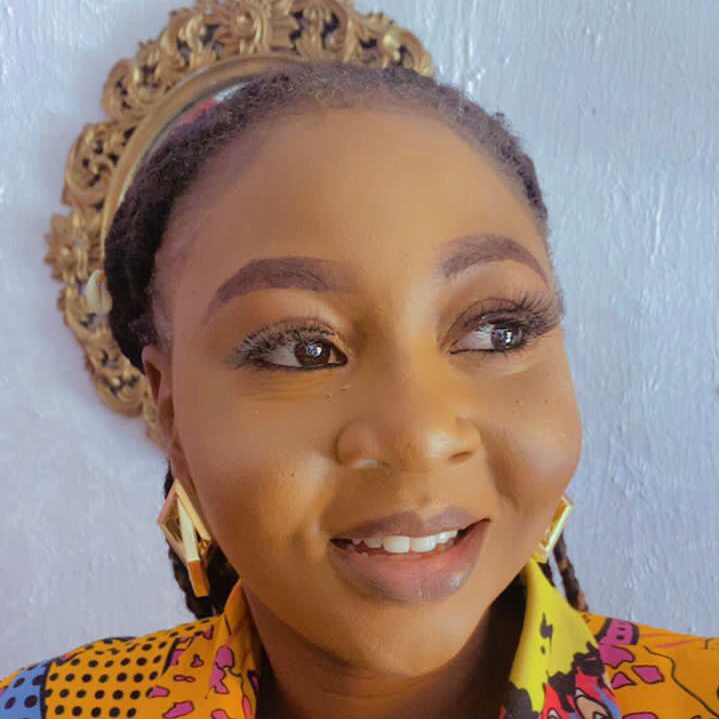In 2022, nearly 89,000 females were murdered worldwide, the highest in two decades, according to research by UNODC and UN Women. Highlighting how homes have become unsafe for most women and girls, female homicides, perpetrated by intimate partners or family members, rose by 55% within that same year. At least more than 133 women or girls were killed each day in their homes on average, compared to only 12% of male homicides occurring in domestic spaces. Still reports suggest that the true scale of femicide may be underreported. Africa recorded the highest number of killings with the most violence relative to its female population.
Confronted by these grim statistics, Ololade Ajayi felt compelled to lead the fight against the growing incidence of femicide and provide some degree of protection to vulnerable members of her community. Her desire to solve these problems led her to found DOHS Cares for Vulnerable Women and Children Foundation, which focusses on combating sexual and gender-based violence (SGBV) and protecting the rights of people living with disabilities.
Short for “Document Our History,” DOHS started as a podcast in 2021, sharing the powerful stories of survivors of domestic violence and sexual abuse. “The podcast was a turning point for us,” Ajayi reflects. “We saw women open up about their trauma, which was an incredible step towards healing and empowering others.”
Ajayi draws on personal encounters with cases of domestic violence. One particular case involved a mother of two who had passed away during a bitter separation from an abusive husband. Fearing for the safety of the couple’s 11-year-old daughter, Ajayi took legal action to bring the husband to book and ensure the child’s protection. Although the case was later dismissed on false claims, the experience only deepened her resolve.
In 2023, DOHS officially became a foundation, broadening its advocacy beyond domestic violence to include addressing poverty and illiteracy. “We empower women economically, provide medical checkups to ensure their mental and physical well-being, and advocate for educational opportunities for girls in rural communities,” Ajayi explains.
In response to the continued spate of femicide, Ajayi set up the Femicide Observatory to monitor and report cases of femicide in Nigeria. By setting up a database on a crime often overlooked in society, she was providing crucial data that could inform future solutions.
As Ajayi expanded her research into the disturbing patterns of SGBV, she discovered legislation in several countries that allowed investigations into the partners of women with a record of domestic violence. The lack of such legislation in Nigeria, she argues, aids and abets perpetrators of domestic violence in Nigeria, allowing them to evade justice, as in the case of the abusive husband who, through false claims, was cleared of killing his wife.
Ajayi is not alone in her criticism. Gender advocates point out that Nigeria’s existing legal frameworks do not adequately tackle violence against women, thereby allowing the abuse to continue unchecked. Perpetrators of femicide are rather prosecuted on murder charges, as the law does not recognise gender-based motivations behind such killings.
The absence of laws explicitly addressing femicide is one of the most significant shortcomings of Nigeria’s criminal justice system. While domestic violence laws exist in theory, they fall short when women die as a result of long-term abuse. Suicide-induced femicide, where women take their own lives due to hopelessness after continuous abuse, remains unaddressed. The Violence Against Persons (Prohibition) Act (VA) is one such law in need of review, as it lacks provisions to deal with femicide or address the root causes of gender-based violence.
Deploying data to depict the rising wave of femicide, Ajayi and her team launched a femicide dashboard to track cases of femicide across Nigeria. In the first half of 2024 alone, at least 46 deaths were recorded. By September, the tally had risen to 78, with an average of eight women killed by intimate partners, relatives or acquaintances each day. In addition to being a repository on femicide, the dashboard was also designed to emphasise the urgency of the crisis.
Her research on femicide revealed trivial motives such as cooking the wrong meal or resisting sexual advances. Most women and girls were killed for demanding equality. In recent years, women’s body organs have been targeted in an increasing spate of ritual killings. Ajayi attributes the widespread discrimination against females to the culture of patriarchy, which views women and girls as objects and meets their resistance with deadly violence. In Lagos, where a staggering 22,000 cases of violence against women were reported in 2023, only 2,500 of these cases made it to court.
Ajayi’s meticulous investigation into cases of SGBV has come at no mean cost. The experience of documenting cases of SGBV is often emotionally taxing, but she remains resolute in her drive. Recently, she submitted a bill to Nigeria’s House of Assembly that sought to close legal loopholes. The bill includes provisions for a databank of missing women and girls and ensures that survivors left behind after femicide are not subjected to further abuse. It also proposes the prosecution of attempted femicide cases, ensuring that perpetrators face consequences even if the victim survives.
Ajayi also advocates for stronger media involvement in combating femicide. She believes that consistent use of the term “femicide” in the media is crucial for raising awareness and mobilising action against gender-based killings.
In 2023, DOHS made significant progress, rescuing over 70 women and children from domestic abuse and exploitation. Legal actions resulted in long sentences for many perpetrators, particularly in cases of sexual abuse. Survivors have been empowered both economically and socially, while DOHS’s health programs have helped reduce cervical cancer rates through screenings and education.
Looking ahead, Ajayi envisions DOHS becoming a recognised authority on SGBV, a sanctuary for women, girls, and vulnerable individuals. By 2030, she hopes to have contributed significantly to the elimination of gender-based violence in Nigeria and expanded operations across Africa and internationally, with the ultimate goal of ending femicide.
In 2022, nearly 89,000 females were murdered globally, marking the highest rate in two decades, primarily within domestic spaces, as highlighted by UNODC and UN Women. These alarming statistics have driven Ololade Ajayi to establish DOHS Cares for Vulnerable Women and Children Foundation to combat gender-based violence and support victims. Initially starting as a podcast in 2021 sharing survivors' stories, DOHS evolved into a foundation addressing broader issues like poverty and illiteracy. Ajayi also set up a Femicide Observatory and launched a dashboard to monitor and report cases in Nigeria, exposing severe underreporting and systemic failures in addressing femicide.
Despite legal efforts such as the Violence Against Persons (Prohibition) Act, existing laws in Nigeria inadequately address gender-based violence and femicide. Ajayi's research exposed trivial and patriarchal motives behind many femicides and emphasized the need for specific legal provisions and stronger media involvement. She proposed a bill to close legal loopholes and protect survivors, aiming to prosecute attempted femicides and establish a databank for missing women. In 2023, DOHS successfully rescued over 70 individuals from abuse and empowered survivors while campaigning for systemic changes. Ajayi's vision for DOHS extends to becoming a leading authority on SGBV and contributing to the elimination of gender-based violence across Africa by 2030.






